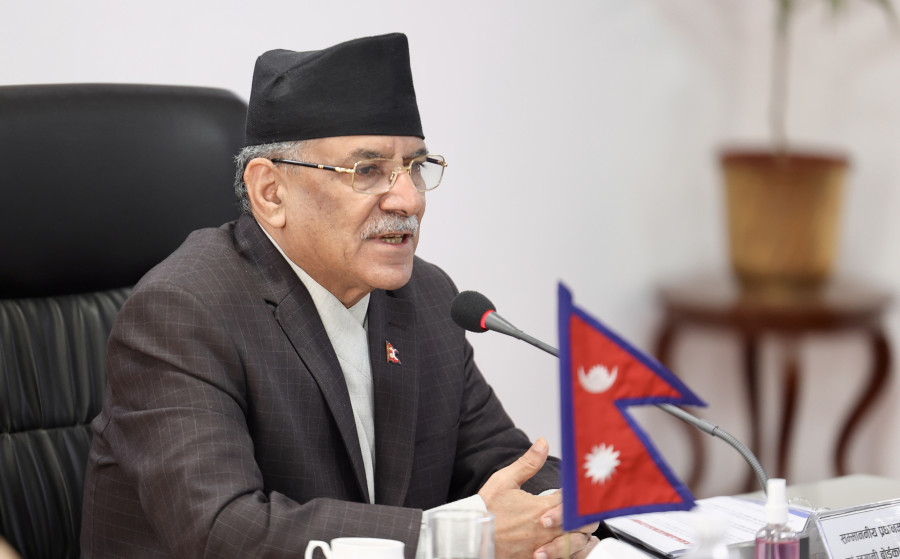Politics
Ex-PMs suggest Dahal raise EPG, border issues with India
The prime minister also consulted former foreign ministers and ex-ambassadors.
Tika R Pradhan
Former prime ministers and foreign ministers have suggested that Prime Minister Pushpa Kamal Dahal urge his Indian counterpart to receive the report prepared by the Eminent Persons Group and resolve border disputes between the two countries.
A team of four members from each country prepared the EPG report in 2018, offering a blueprint for strengthening the age-old Nepal-India relations in the changed context.
Dahal, who is visiting India on Wednesday in his first foreign visit since becoming prime minister in December last year, has consulted former prime ministers as part of his preparations for dialogue in India.
Dahal consulted former prime ministers including Sher Bahadur Deuba, KP Sharma Oli, Jhala Nath Khanal and Baburam Bhattarai. Former foreign ministers also attended the meeting. Also, he had consulted former ambassadors to India.
Former Nepali ambassador to India Durgesh Man Singh said that the prime ministers should not present in Delhi a long list of demands and avoid giving an impression that Nepal only seeks help from other countries.
Most of the suggestions given during the consultation were similar. UML leaders including its chair and former prime minister KP Sharma Oli focused mainly on the submission of the EPG report, resolving border disputes and developing the Pancheshwar hydro project among others.
“We have suggested the prime minister to focus on some half a dozen issues–urging the Indian counterpart to receive EPG report and Nepal should get to use Limpiyadhura, Lipulekh and Kalapani, work on Pancheshwar project, secure air-routes among others,” said Pradeep Gyawali, a former foreign minister and UML deputy general secretary, following the meeting at Singhadurbar. “We have asked the prime minister to create an environment of mutual trust by discussing the national issues openly.”
Leading a delegation of four dozen ministers and government officials, the prime minister will visit India from May 31 to June 3. Kathmandu and New Delhi officially announced the date of the visit on Saturday, which is Dahal’s first official outing since assuming office in December last year.
According to the leaders present at the meeting, the political leaders, former foreign ministers and former prime ministers have suggested the prime minister present the concerns of the country strongly with high self-esteem so as to develop a cordial and trustworthy relationship with the southern neighbour.
During the visit, the prime minister is likely to raise various other issues such as inundation problems, energy trade as well as timely completion of the India-funded projects in Nepal.
The two neighbouring countries will also seek to explore new areas of cooperation.
On behalf of the CPN (Unified Socialist), one of the ruling coalition partners, former prime minister Jhalanath Khanal has given a 19-point suggestion for the prime minister to raise during his India visit.
His suggestions include a diplomatic resolution to the border disputes including Limpiadhura, Lipulekh and Kalapani, a review of the 1950 treaty, acceptance of the EPG report by the Indian side, reducing Nepal’s trade deficit, direct air route to Bhairahawa and Pokhara airports, Indian investments on industrialisation, energy, tourism, physical infrastructure and industrialisation of agriculture and marketing and maintaining the record-keeping system at the open border points among others.
Khanal also advised discussing the stalled SAARC process, ending the disparity in telephone charges, resolving perennial inundation in Nepali settlements in the Tarai due to the dams and embankments constructed by India.
According to leaders present at the meeting, Prime Minister Dahal assured them that he won’t compromise on national interest and would act according to the suggestions given by former prime ministers, foreign ministers and other officials.




 14.12°C Kathmandu
14.12°C Kathmandu














